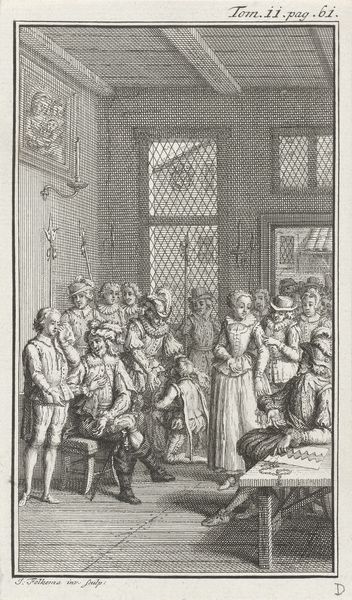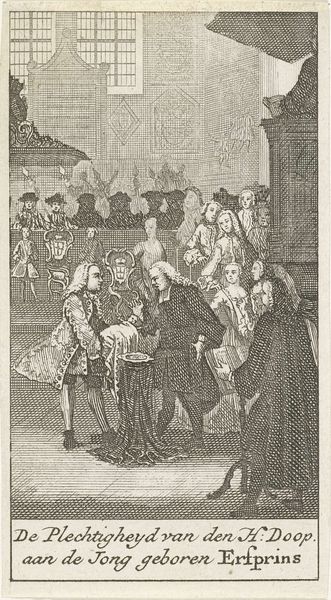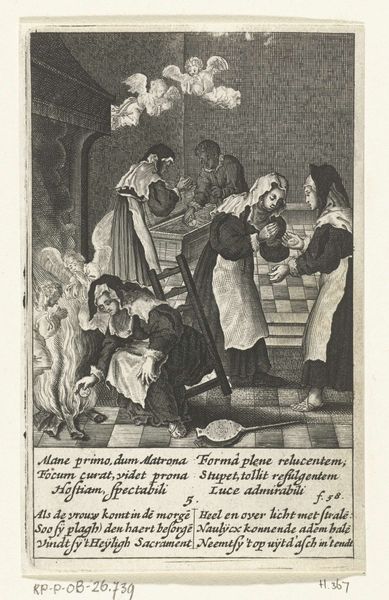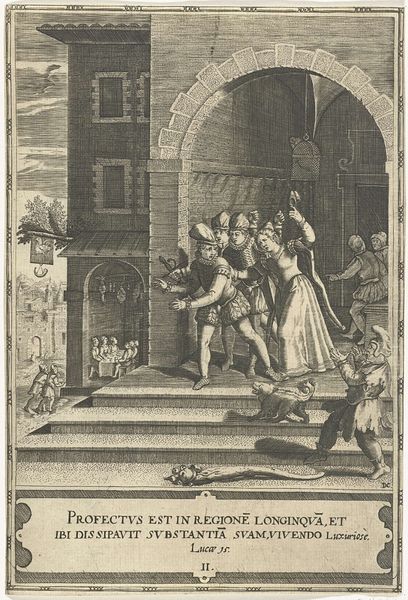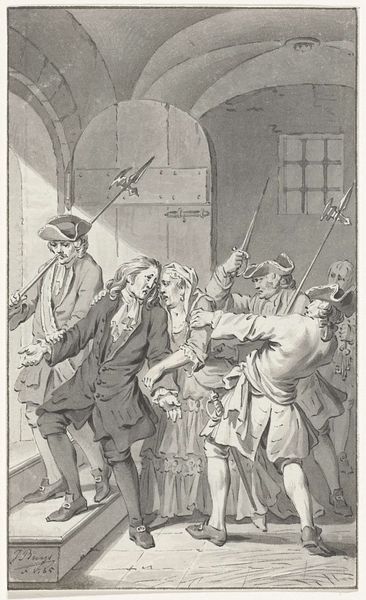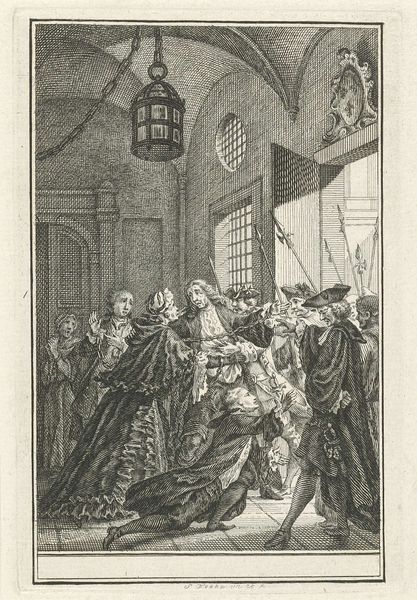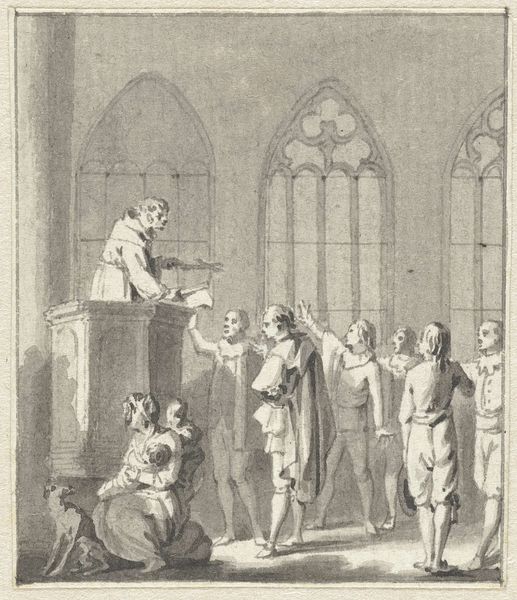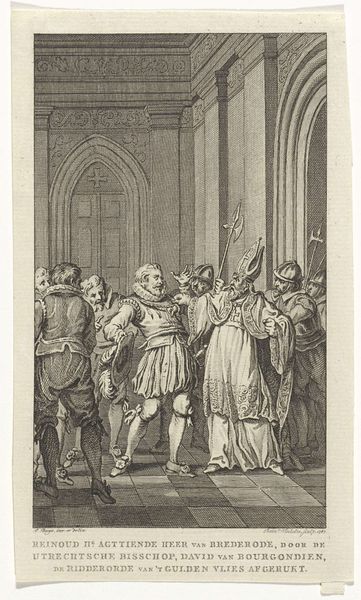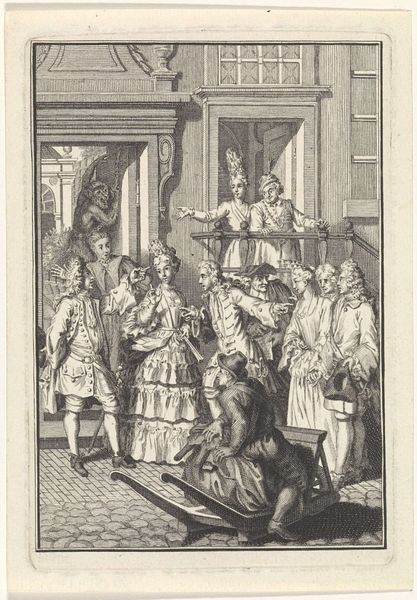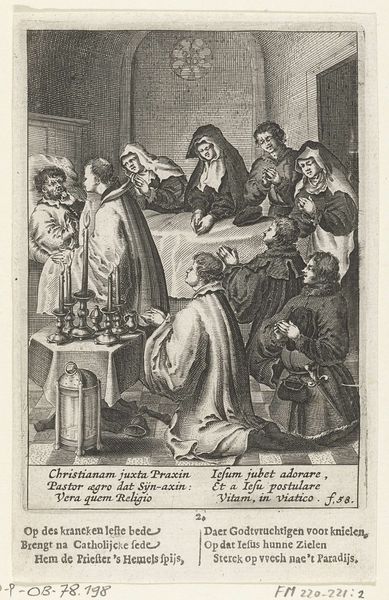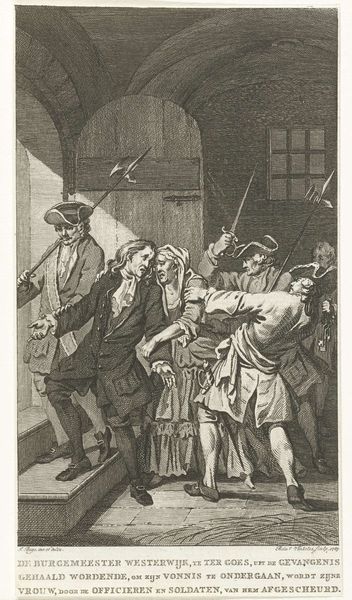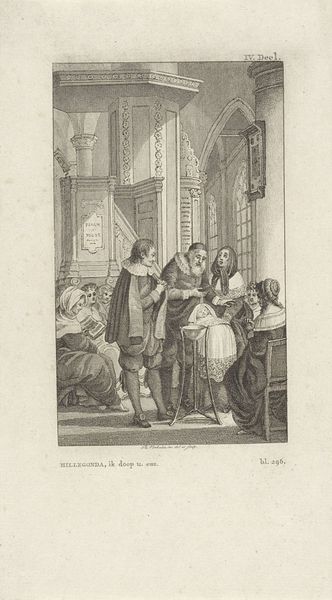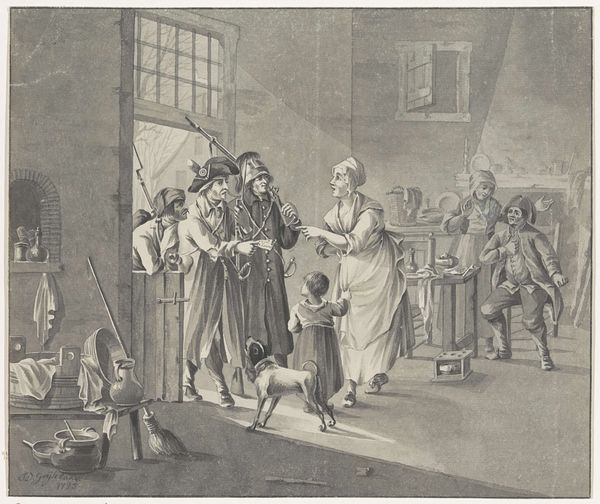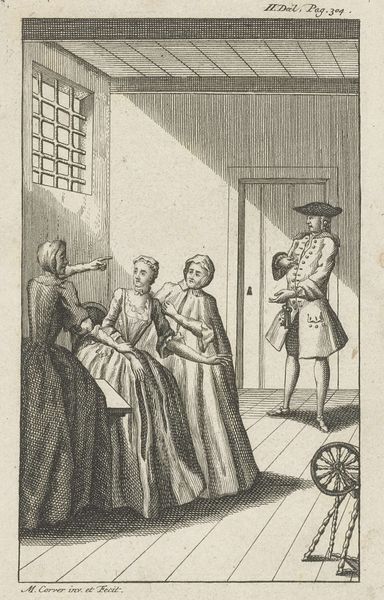
engraving
#
narrative-art
#
baroque
#
figuration
#
cityscape
#
genre-painting
#
history-painting
#
engraving
Dimensions: height 167 mm, width 105 mm
Copyright: Rijks Museum: Open Domain
This engraving, dating to around 1750, captures a Dutch custom around the Epiphany. The central symbol is a large, radiant star—a clear reference to the Star of Bethlehem, which guided the Three Kings to the infant Jesus. Notice how the star motif transcends its original religious context. Similar radiant symbols appear in various cultures, often representing divinity, guidance, or enlightenment. Think of the sun disks in ancient Egyptian art or the halos in Byzantine icons, all radiating a sense of higher power. But here, it is not in the heavens, it is carried by children. Consider the psychological dimension: the star embodies hope and revelation. Its recurrence throughout history suggests a deep-seated human longing for direction and meaning, a longing that finds expression in the collective memory and is subconsciously perpetuated through such symbols. The star reappears, evolves, and takes on new meanings, demonstrating how cultural symbols are never static but continuously reshaped by the passage of time and the collective psyche.
Comments
No comments
Be the first to comment and join the conversation on the ultimate creative platform.
